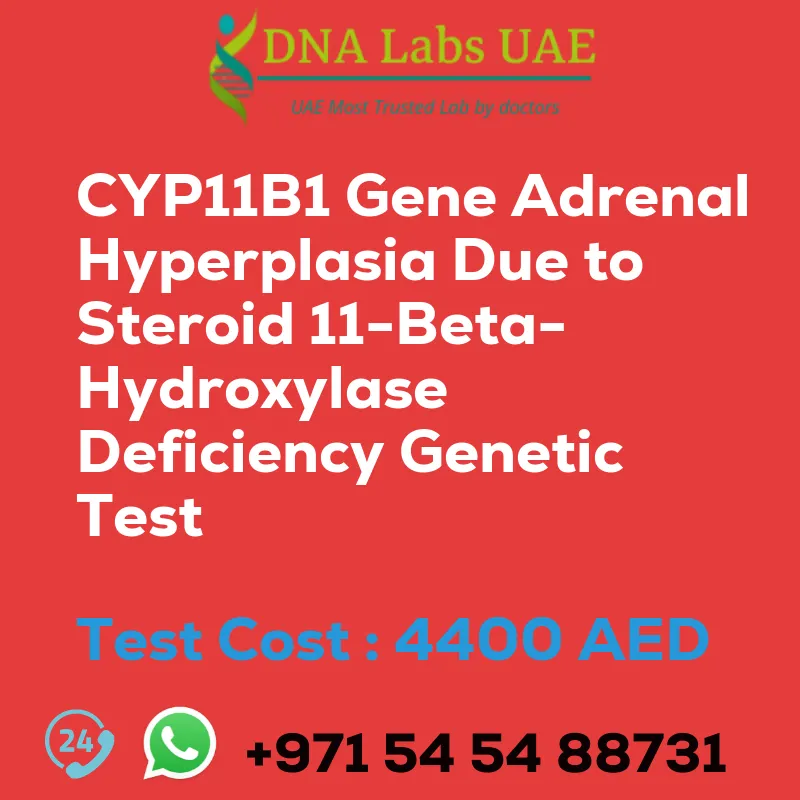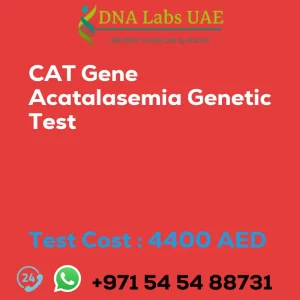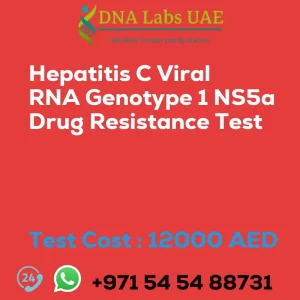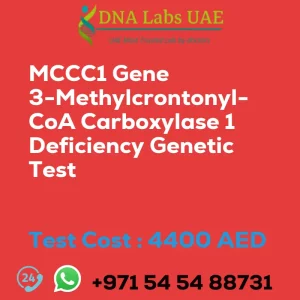CYP11B1 Gene Adrenal Hyperplasia Due to Steroid 11-Beta-Hydroxylase Deficiency Genetic Test
Test Name: CYP11B1 Gene Adrenal Hyperplasia Due to Steroid 11-Beta-Hydroxylase Deficiency Genetic Test
Components: CYP11B1 Gene Adrenal Hyperplasia Due to Steroid 11-Beta-Hydroxylase Deficiency Genetic Test
Price: 4400.0 AED
Sample Condition: Blood or Extracted DNA or One drop Blood on FTA Card
Report Delivery: 3 to 4 Weeks
Method: NGS Technology
Test Type: Metabolic Disorders
Doctor: General Physician
Test Department: Genetics
Pre Test Information: Clinical History of Patient who is going for CYP11B1 Gene Adrenal Hyperplasia Due to Steroid 11-Beta-Hydroxylase Deficiency NGS Genetic DNA Test. A Genetic Counselling session to draw a pedigree chart of family members affected with Adrenal Hyperplasia Due to Steroid 11-Beta-Hydroxylase Deficiency
Test Details
The CYP11B1 gene is responsible for encoding the enzyme 11-beta-hydroxylase, which is involved in the synthesis of cortisol and aldosterone in the adrenal glands. Mutations in the CYP11B1 gene can lead to a condition called adrenal hyperplasia due to steroid 11-beta-hydroxylase deficiency. This genetic disorder is characterized by impaired cortisol synthesis, leading to an excess production of adrenal androgens. This can result in a variety of symptoms, including early-onset puberty, virilization (development of male characteristics) in females, and hypertension due to excess aldosterone production.
NGS (Next-Generation Sequencing) genetic testing is a method used to analyze the DNA sequence of genes and identify any mutations or variations that may be present. In the case of adrenal hyperplasia due to steroid 11-beta-hydroxylase deficiency, NGS genetic testing can be used to detect mutations in the CYP11B1 gene, helping to confirm a diagnosis and guide treatment decisions. By identifying the specific genetic mutation causing the deficiency, NGS testing can also provide valuable information for genetic counseling and family planning purposes. Additionally, NGS testing can help differentiate this condition from other forms of adrenal hyperplasia, which may have different genetic causes and treatment approaches.
Overall, NGS genetic testing for adrenal hyperplasia due to steroid 11-beta-hydroxylase deficiency can provide important insights into the underlying genetic cause of the condition, allowing for more accurate diagnosis and personalized treatment strategies.
| Test Name | CYP11B1 Gene Adrenal hyperplasia due to steroid 11-beta-hydroxylase deficiency Genetic Test |
|---|---|
| Components | |
| Price | 4400.0 AED |
| Sample Condition | Blood or Extracted DNA or One drop Blood on FTA Card |
| Report Delivery | 3 to 4 Weeks |
| Method | NGS Technology |
| Test type | Metabolic Disorders |
| Doctor | General Physician |
| Test Department: | Genetics |
| Pre Test Information | Clinical History of Patient who is going for CYP11B1 Gene Adrenal hyperplasia due to steroid 11-beta-hydroxylase deficiency NGS Genetic DNA Test A Genetic Counselling session to draw a pedigree chart of family members affected with Adrenal hyperplasia due to steroid 11-beta-hydroxylase deficiency |
| Test Details |
The CYP11B1 gene is responsible for encoding the enzyme 11-beta-hydroxylase, which is involved in the synthesis of cortisol and aldosterone in the adrenal glands. Mutations in the CYP11B1 gene can lead to a condition called adrenal hyperplasia due to steroid 11-beta-hydroxylase deficiency. This genetic disorder is characterized by impaired cortisol synthesis, leading to an excess production of adrenal androgens. This can result in a variety of symptoms, including early-onset puberty, virilization (development of male characteristics) in females, and hypertension due to excess aldosterone production. NGS (Next-Generation Sequencing) genetic testing is a method used to analyze the DNA sequence of genes and identify any mutations or variations that may be present. In the case of adrenal hyperplasia due to steroid 11-beta-hydroxylase deficiency, NGS genetic testing can be used to detect mutations in the CYP11B1 gene, helping to confirm a diagnosis and guide treatment decisions. By identifying the specific genetic mutation causing the deficiency, NGS testing can also provide valuable information for genetic counseling and family planning purposes. Additionally, NGS testing can help differentiate this condition from other forms of adrenal hyperplasia, which may have different genetic causes and treatment approaches. Overall, NGS genetic testing for adrenal hyperplasia due to steroid 11-beta-hydroxylase deficiency can provide important insights into the underlying genetic cause of the condition, allowing for more accurate diagnosis and personalized treatment strategies. |








